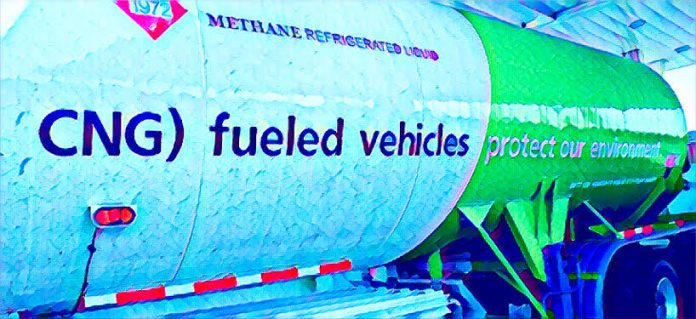The Presidential Compressed Natural Gas Initiative has begun implementing its Concessionary Autogas Supply and Pricing Framework, aimed at regulating prices and ensuring orderly distribution in Nigeria’s rapidly expanding auto CNG market.
This move comes as demand for compressed natural gas continues to rise sharply, driven by its increasing adoption as a cleaner, more affordable alternative to petrol and diesel.
The rollout is also backed by the fast-growing number of CNG refueling stations across the country, making CNG a central pillar in the Federal Government’s clean energy agenda.
Speaking at the mobility CNG supply framework kick-off event held in Abuja, PCNGi Programme Director, Michael Oluwagbemi, said the new pricing structure is a major part of President Bola Tinubu’s wider energy sector reforms.
He noted that the framework approved earlier this year by the Chief Executive of the Nigerian Midstream and Downstream Petroleum Regulatory Authority deliberately pegs autogas CNG prices below those for power generation and industrial gas usage, identifying it as a vital national interest sector.
“What we are doing here today is to flag off the implementation of that concessionary pricing framework, because it was necessary, as you can imagine, that in an economy where gas is being used for various purposes, that it’s possible for someone to say, I want to make demands of gas for auto CNG since it’s priced lower, and then go and use it for power,” Oluwagbemi explained.
“So there was a potential opportunity for arbitrage. So we needed to do it in an organised market for autogas CNG, and also then develop the marketplace where people can actually make demand, pay for it, get their gas, use it, sell it into the auto CNG. As you know, that market has been growing tremendously in the last year.”
The framework, he added, is designed to create a transparent and structured marketplace that includes all players from gas producers and distributors to station operators and end-users.
According to Oluwagbemi, Nigeria’s auto CNG market has seen rapid expansion in just one year. From 20 refueling stations, the country now has over 65, with two recently inaugurated in Ibadan and nearly 30 more expected in the short term.
“So there is a growing market. We just got the announcement by Dangote that he’s also adding another 100 daughter stations to the 175 that we have under construction. So you can imagine that we need to get this going in an organised way,” he said.
“We’ve gone from about 4,000 CNG vehicles, mostly in Edo State, to over 50,000 daily users across the country. And that doesn’t include trucks, which are being converted at a rapid pace every day,” he stated.
He noted that long queues at CNG stations especially in major cities like Abuja are now commonplace.
“It’s a good problem, and we’re here to solve it. The market won’t be perfect from day one, but our job is to make it better every day,” he added.
Looking ahead, the PCNGi projects that between 125,000 to 200,000 CNG-powered vehicles will be in operation by the end of 2025, with an ambitious national goal of hitting one million vehicles by 2027.
While PCNGi is coordinating the effort, Oluwagbemi stressed that the bulk of conversions and infrastructure will come from the private sector.
“Our role is to incentivize and enable. The government won’t build everything. But by providing targeted incentives like concessionary gas pricing, we can catalyze private investment and deliver a more secure energy future for Nigerians,” he said.

